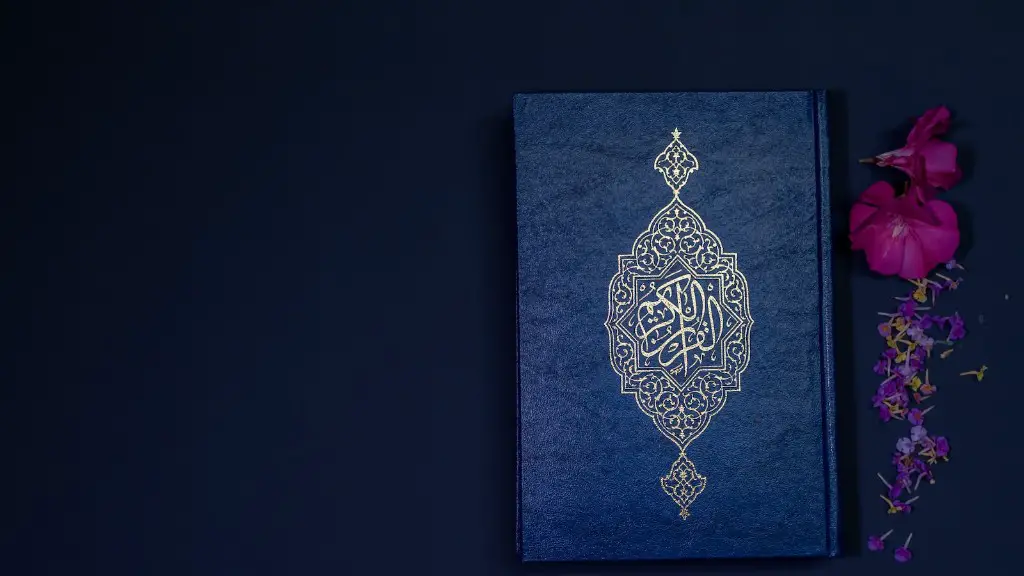In Islam, marriage is a contract between a man and woman to live together as husband and wife. The contract can be terminated through divorce – a process which is regulated by Islamic law. While divorce is sometimes seen as a negative thing, it can also be seen as a positive choice for both parties involved. It allows them to move on from a unhappy or abusive marriage and start fresh. In some cases, it may be the best option for the children of the marriage.
Yes, a woman can divorce in Islam. The Quran gives women the right to seek divorce in certain circumstances, such as if her husband is abusive or if the marriage is not working out.
When can a woman divorce in Islam?
There are a variety of schools of thought when it comes to divorce, and what is considered an acceptable ground for divorce varies widely among them. In the Hanafi school, for example, a woman has almost no grounds for obtaining a divorce provided her husband has consummated the marriage. She cannot be divorced from him even if he fails to support her, abuses her, or is imprisoned for life. This is just one example, and it’s important to be aware of the different schools of thought on divorce before making any decisions.
In the Islamic tradition, both Muslim men and women are allowed to divorce. However, community interpretations of Islamic laws mean that men are able to divorce their wives unilaterally, while women must secure their husband’s consent. This disparity can often lead to women being trapped in abusive marriages, as they are unable to leave without their husband’s permission.
Can a woman divorce her husband
Yes, a woman can initiate divorce. In most cases, she will need to present her husband with a formal notice of her intent to divorce, and then file a petition with the court. If the husband does not agree to the divorce, she may need to prove grounds for divorce, such as adultery or abandonment.
In Islam, a woman who wishes to terminate her marriage contract without the consent of her husband must do so by applying to the Shariah Council. This type of divorce is commonly referred to as a Khula. A Khula can be granted if the woman is able to prove that her husband has mistreated her or that the marriage is otherwise unhappy. If the Shariah Council grants a Khula, the woman is then free to remarry.
Can a woman divorce her husband in Quran?
Khul’ is a type of divorce in Islam which allows a woman to initiate a divorce. It is based on traditional fiqh and is referenced in the Qur’an and hadith. Khul’ can be granted by a husband to his wife, or by a judge in a court of law.
The Quran gives spouses the freedom to remarry and reunite even after two divorces. However, after the third divorce, they can only reunite if the woman gets married to another man and then divorced. This is to ensure that both spouses have equal rights in the marriage.
What is a wife entitled to in a divorce in Islam?
According to Islamic law, upon talaq (divorce), the wife is entitled to the full payment of mahr (dower) if it had not already been paid. The husband is obligated to financially support her until the end of the waiting period or the delivery of her child, if she is pregnant.
In Islam, divorce is considered as an exception to the status of marriage. The prophet declared that among the things which have been permitted by law, divorce is the worst. If attempts to reconcile a couple fail, talaq may be effected. The dissolution of marriage may be either by the act of husband or by act of the wife.
What are valid reasons for divorce in Islam
There are many reasons why a woman might request and obtain a divorce from her husband. These include physical or mental disorders, an inability to consummate the marriage, or desertion. The Quran recognizes the third type of divorce in Islam, known as a divorce by mutual agreement. Mut’ah is a temporary marriage that can be contracted for a specified period of time, and it is recognized by the Shia school of Islam. Although the practice of mut’ah is not common in other schools of Islam, it is still an option that a woman might consider if she is unhappy in her current marriage.
Sunni scholars agree that divorce is allowable in Islam, but they differ in opinion on whether it is permissible for a woman to initiate divorce. Some scholars deem it halal (“lawful”), while others consider it makruh (“disliked”) or haram (“forbidden”) for a woman to initiate divorce. The husband is responsible for the education and maintenance of the children after divorce.
How many times can you divorce in Islam?
In Islam, a husband can divorce his wife three times. After the first two divorces, the couple can reconcile and the husband can take his wife back. However, after the third divorce, they can no longer get back together until she marries someone else.
However, following the end of the waiting period from a revocable divorce or after an irrevocable divorce, the couple can still remarry. This is the case even after two divorces.
What are the 2 types of divorce in Islam
Under Muslim law, there are four main types of divorce: talaq, mubarah, khul’u, and tafriq or faskh. Imam and BAOBAB agree on the existence of these four types of divorce.
Talaq is the most common type of divorce under Muslim law. It is a unilateral divorce, which means that it can be initiated by either the husband or the wife. In order to initiate a talaq divorce, the husband must be an adult, be sane, and not be acting under any sort of coercion (external pressure).
Mubarah is a type of divorce that can be initiated by either the husband or the wife. Unlike talaq, mubarah is a mutual divorce, which means that both parties must agree to the divorce.
Khul’u is a type of divorce that can only be initiated by the wife. In order to obtain a khul’u divorce, the wife must surrender all of her rights to the husband, including her right to alimony.
Tafriq or faskh is a type of divorce that can be initiated by either the husband or the wife. Tafriq or faskh is a divorce that
If you want to give khula to your husband and he is also willing to leave you, then you can approach a Khazi and go for khula. You don’t need a marriage certificate for it. You can also approach the Honourable Court and get divorce from your husband.
Does saying talaq in anger count?
It is important to follow the proper procedure for pronouncing talaq, as specified by Islamic law. The talaq must be pronounced before a Kazi, in a mosque, in the presence of religious elders. Maintenace must be given to the wife for three months, as fixed by the Kazi. If both husband and wife are in anger, the talaq is not considered valid.
Talaq is the Islamic term for divorce. It can bepronounced by a husband to his wife, or by a wife to her husband. A divorce is only finalised after the husband has pronounced talaq three times, or the wife has pronounced it once.
Final Words
There are provisions for divorce in Islam, but it is strongly discouraged. If a couple absolutely cannot get along, then divorce is an option, but it is not taken lightly. The woman must go to a judge and state her case. If the judge believes the woman has a valid reason for divorce, then he will grant it.
A woman can divorce in Islam if her husband gives her permission to do so, or if she has just cause. Islam does not condone divorce, but it does allow for it in certain circumstances. A woman who divorces her husband must observe a waiting period of three months before she can remarry.




